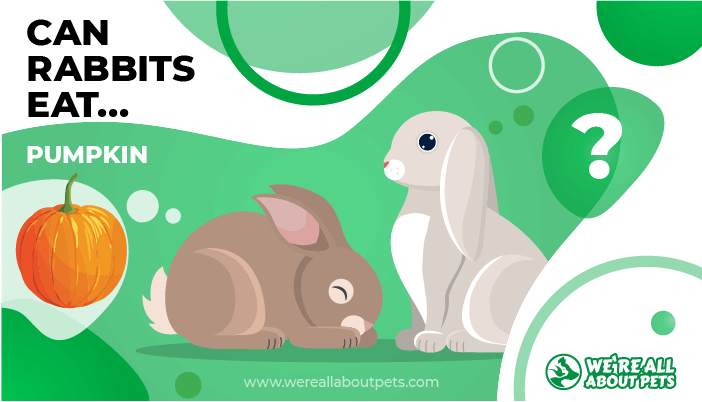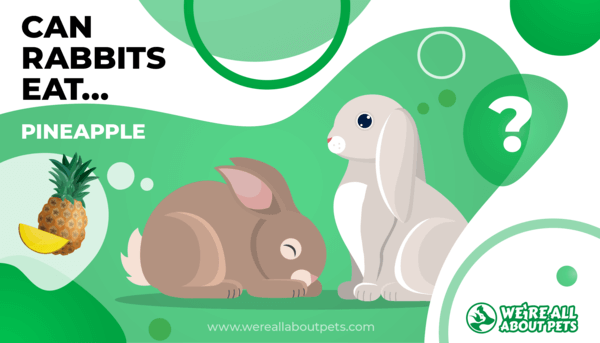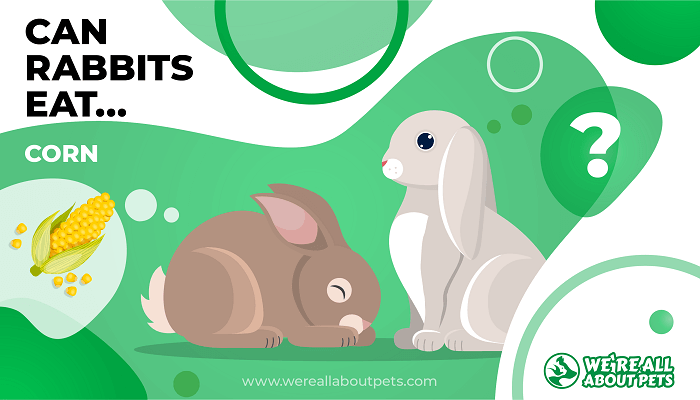Can Rabbits Eat Apples?
This page contains affiliate links. We may earn money or products from the companies mentioned in this post through our independently chosen links, which earn us a commission. Learn More
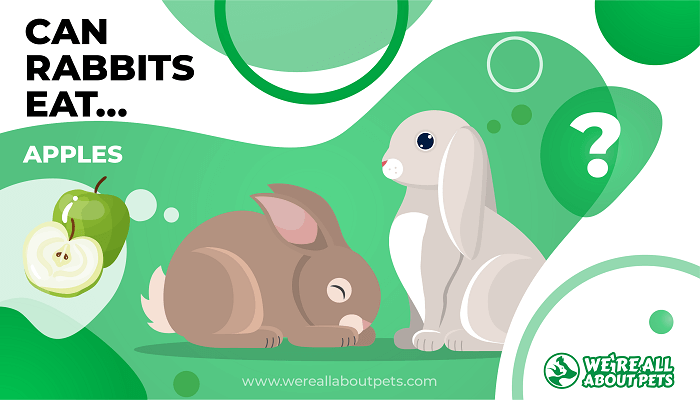
“An apple a day keeps the doctor away!” This wise old saying applies to us humans, but is it true for rabbits, too?
The short answer is “yes,” but there’s a lot more to the story!
Let’s take a closer look at the question of whether apples are an appropriate treat for bunnies.
Hold on tight, because we’re going to go deep down this rabbit hole!
Apple Nutrition Stats
If you love apples, you probably know that they’re a fairly low-calorie fruit with a nice crunch, tons of fiber, and absolutely no cholesterol.
These are just a few things that make apples a good choice for you and for your pet rabbit!
A medium-sized apple contains:
- 72 calories
- 19 g carbohydrates
- 3 g fiber
- .36 g protein
- .2 g fat
Apple Nutritional Facts

Although apples don’t contain tons of calories, they do contain quite a bit of vitamin C – about 6.3 milligrams, which covers about eleven percent of a person’s US daily recommended value.
That same medium-sized apple offers some other essential nutrients including:
- 75 iu vitamin A
- 148 mg potassium
- 8 mg calcium
- 1 mg magnesium
- .17 mg iron
Apples also contain traces of zinc, niacin, manganese, and phosphorus, along with vitamin B6, vitamin B1, vitamin B2, and vitamin K.
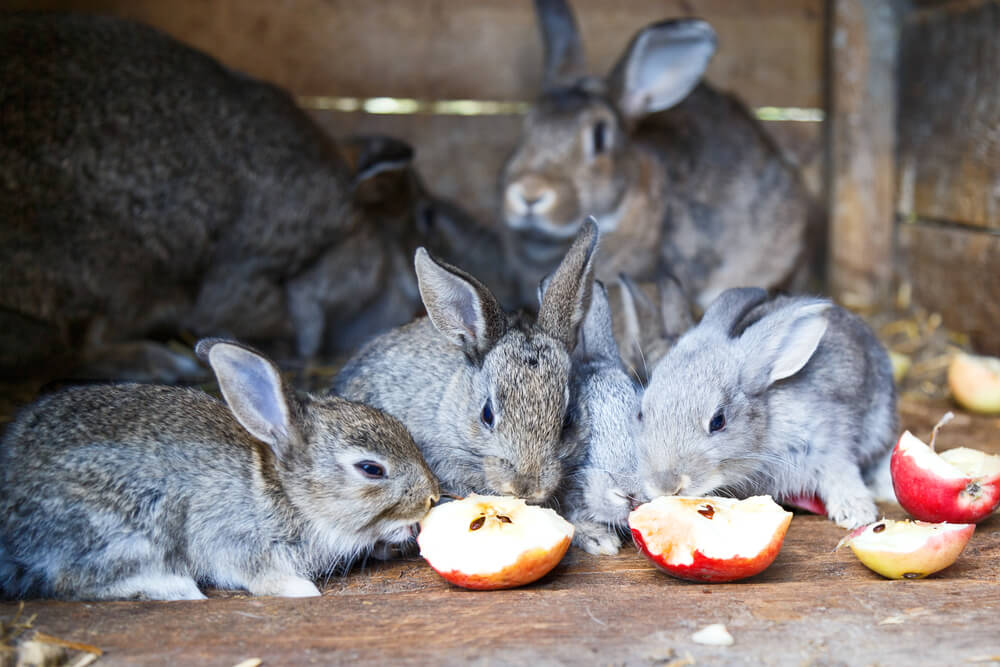
Can Rabbits Have Apples?
Absolutely! Rabbits can have apples as a treat, but only in small quantities. While it’s a good idea for us humans to eat at least one apple every day for the antioxidants as well as the soluble fiber that helps combat high cholesterol, apples are relatively high in sugar – at least for a rabbit’s nutritional needs!
Are Apples Good For Rabbits?
Here’s where things get a little bit complicated. Just as apples are great for you, they’re very good for rabbits, but only when you prepare them carefully.
Most of the nutrients in an apple are located within the skin and right under the skin. This means that for your bunny to get all the benefits of apple while enjoying one of the tastiest rabbit snacks around, the skin should be part of the equation.
Unfortunately, apples are among the most chemically treated of all fruits, simply because the trees and the developing apples are susceptible to disease, and they’re often targeted by pests.
Farmers protect their crops with pesticides, which are partly to thank for the beautiful, smooth appearance of most apples offered for sale at your local supermarket.
The same chemicals that keep pests from biting into the apples as they’re developing are responsible for apples making it onto the “dirty dozen” list of chemically treated produce year after year.
So, what’s a rabbit parent to do? We recommend buying organic apples for yourself, your family, your bunny, and any other pets that receive apples for a treat.
More now than ever, orchard owners are offering organic apples that might be slightly blemished, but that don’t come with any risks associated with pesticides. Organic apples are better for farmers, better for the planet, better for you, and great for your rabbit!
If you can’t find organic apples or if they’re priced too high, don’t worry. You can still give your rabbit apple pieces but only after you’ve washed the apples very well using a produce wash.
As an alternative, you can peel the apple before giving it to your bunny rabbit, but keep in mind that you’ll be removing some nutrients at the same time.
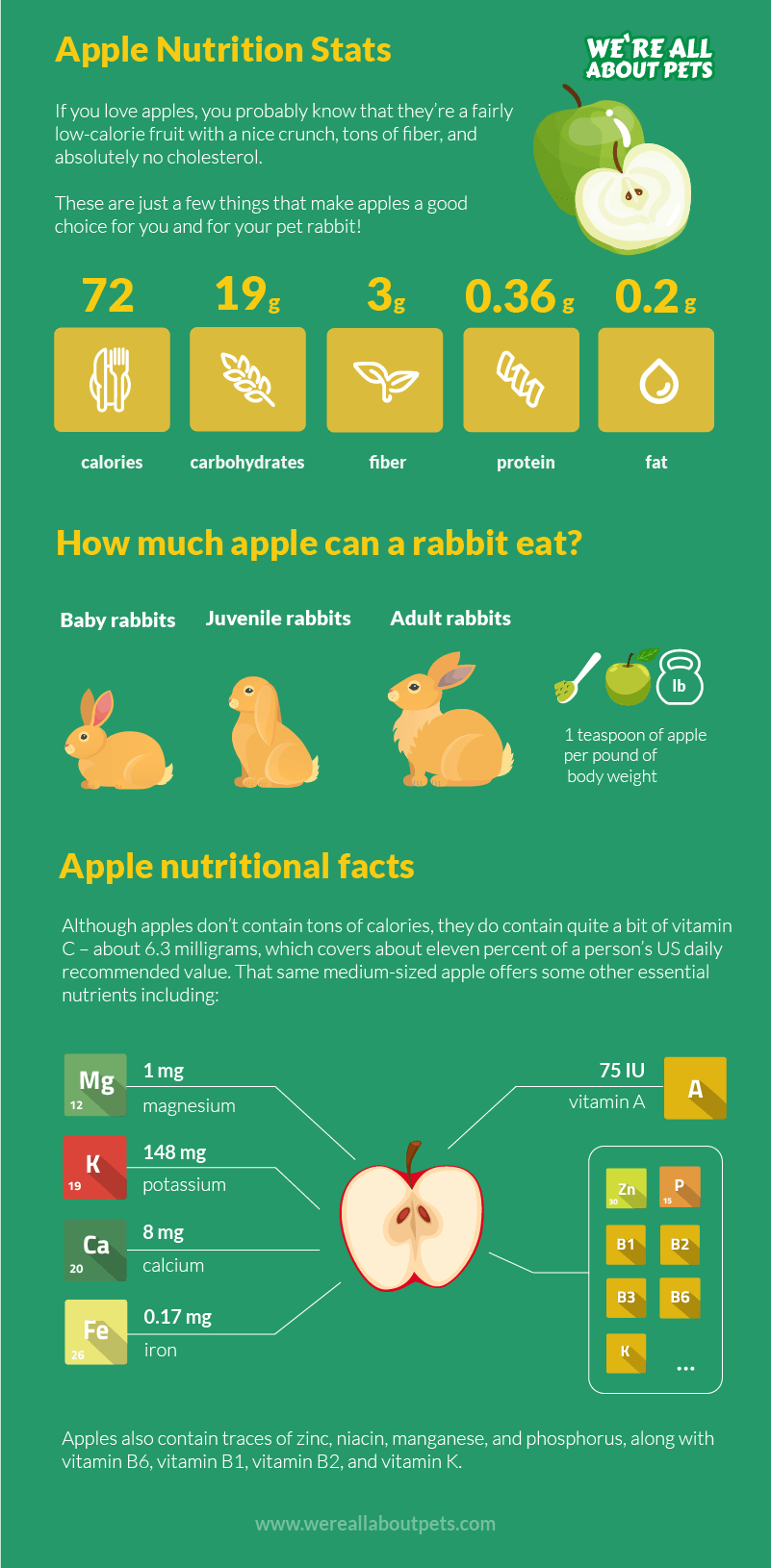
Can Rabbits Eat Apple Seeds?
Here’s another tricky bit. Apple seeds aren’t safe for rabbits. Be sure to remove the core and all of the seeds when prepping your pet rabbit’s apple snack, and be sure to remove the stem, too.
You’re probably wondering why rabbits shouldn’t eat apple seeds and stems.
Here’s the scoop: Both apple seeds and apple stems contain powerful compounds called cyanogenic glycosides. A trace amount can leave your bunny with an upset tummy and a case of diarrhea, while slightly larger amounts can cause serious health problems including convulsions, a dangerously low heart rate, and even death.
We don’t want to frighten you, but we do want to help you keep your rabbit safe and healthy! So, go ahead and treat your bunny to some yummy apple bits, but be very careful to prep them properly.
How Much Apple Can A Rabbit Eat?
Now that you know it’s safe to feed apples to a rabbit, you’re probably wondering how much to offer.
Even though apple is a healthy treat for rabbits, it’s very important to remember that any new food should be offered in a very small amount.
This means starting with about a teaspoon and gradually working your way up to a larger serving, so long as you don’t notice unusual behavior, loose stool, or discomfort. All three are signs of potential trouble with your bunny’s digestive system.
In general, rabbits can have one teaspoon of apple per pound of body weight.
This means that if your rabbit weighs eight pounds, you can give them about eight teaspoons of apple once they’ve become accustomed to eating it.
Since bunnies love to chewYou can give your rabbit apple in a single chunk or chop it into small pieces. Either way, remember to double-check for any remaining apple seeds and/or stem pieces before you dish up that tasty treat!
Bunnies are so cute when they eat, and they’re always extra-eager to sink their teeth into special treats.
If you’re ever tempted to offer your rabbit a larger portion than recommended, there’s a very good reason not to cave in when you’re confronted with those adorable eyes and wiggling whiskers:
Apples are a comparatively high sugar food and eating too much can cause digestive problems.
It’s important to make treats just a small fraction of your rabbit’s diet overall.
How Much Apple Can A Rabbit Eat?
You can give your rabbit a little bit of apple every day once they’re used to it, but a better approach is to provide a wide variety of treats each week. When you offer lots of different foods such as strawberries, blueberries, grapes, and bananas over the course of several days, your bunny receives lots of different nutrients.
Offering a wide variety of treats is a great way to keep your rabbit’s life interesting, too!
The Correct Diet Is Important
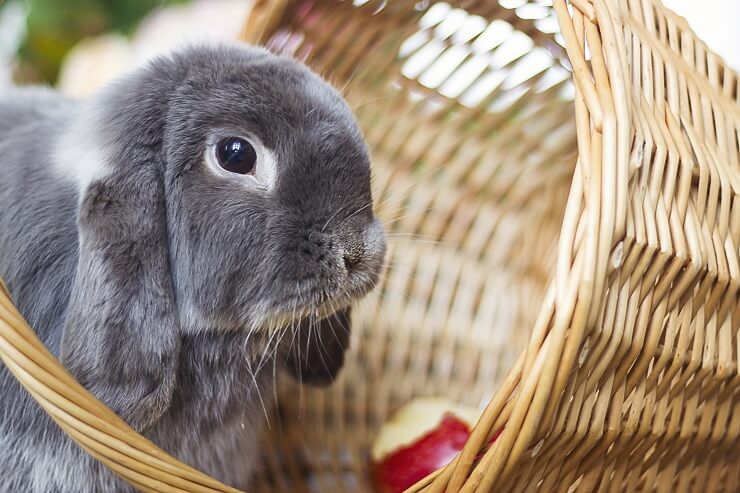
Wild rabbits spend their waking hours nibbling on grasses and leafy greens. They do take the opportunity to enjoy fruits when they encounter them but this isn’t often! It is very important to create a menu that’s based on your rabbit’s natural needs.
Most of your rabbit’s diet should consist of good-quality grass hay and an ample supply of clean water. Offer as much as your bunny can eat and try not to let them run out of hay as their digestive systems are set up to support near constant food intake.
Chewing plenty of dry hay and having access to rabbit chew toys can help keep your rabbit’s teeth from becoming overgrown, too.
Next, choose a pelleted rabbit food. This should be offered in a wide, low-profile dish or a specialized rabbit feeder. Check the manufacturer’s recommendations for how much pelleted food to feed your rabbit.
Rabbits like pumpkin seeds, squash seeds, and sunflower seeds. These are fantastic additions to your rabbit’s diet as they are highly nutritious and a great source of healthy fat.
Rotate different leafy vegetables through your rabbit’s daily menu, too. You might also consider treating them to root vegetables and other healthy veggies along with very small amounts of fruit. Most high sugar, low water fruits can be offered at a rate of one teaspoon per two pounds of body weight, although there are exceptions including apple!
In all, your rabbit’s daily “salad” can consist of about a cup of green, leafy veggies for every two pounds of body weight. Remember to introduce new foods slowly and watch for signs of tummy trouble. Wash everything (even organic produce) to keep your bunny safe from any contaminants.
It can be tempting to give your rabbit a large amount of apple or other treats, but don’t cave in! Rabbits digestive systems are subject to a condition called GI Stasis.
Very simply put, a lack of fibrous grass hay and too much sugar can contribute to a rabbit’s digestion slowing down or even stopping altogether. We aren’t here to frighten you but it’s important to understand that rabbits with GI Stasis often die.
What Are Other Healthy Alternatives To Apples In A Rabbit’s Diet?
There’s no shortage of healthy treats for rabbits!
Most rabbits like:
- cilantro
- parsley
- carrot tops
- parsnip greens
- swiss chard
- beet greens
- radish tops
- celery
- celery leaves
- arugula
- spinach
- butter lettuce
- romaine lettuce
- cabbage
- broccoli
- dandelion greens
- escarole
- endive
- fennel (bulbs and leaves)
- yu choy
- bok choy
- kale
- bell peppers
- carrots
- brussels sprouts
It’s very important rotate the treats and “salad greens” you give your rabbit. Oxalate is a compound found in varying amounts in different plants and when eaten in excess, it can build up and cause kidney trouble.
Giving your rabbit apple is one more way to mix things up and ensure that their diet has plenty of variety!
Frequently Asked Questions
Are apples safe for rabbits?
Yes, apple is generally a safe treat for rabbits! Just remember that rabbits should never eat apple seeds or stems, and that organic apples are best. Always wash produce before you give it to your rabbit and remember to offer small quantities to ensure that your bunny’s digestive tract can handle new foods. Remember that apples are occasional treats and shouldn’t make up the bulk of your bunny’s daily intake.
Can I give apples to a baby rabbit?
Apples are fantastic for adult rabbits, but it’s best not to give baby rabbits apple. Since a baby rabbit’s digestive tract is still growing and is far more sensitive than that of a mature rabbit, it’s very important to provide grass hay, lots of fresh water, and plenty of rabbit pellets formulated to support your growing bunny. Baby rabbits can get sick quickly and when they do, they can be difficult to rehabilitate. Feed your baby bunny carefully to ensure a longer, healthier life!
Can apples make my rabbit sick?
Yes, but only if you forget to remove the seeds and stem, or if the apple is contaminated or spoiled. Be sure that other family members and pet sitters know that rabbits should never eat apple seeds.






